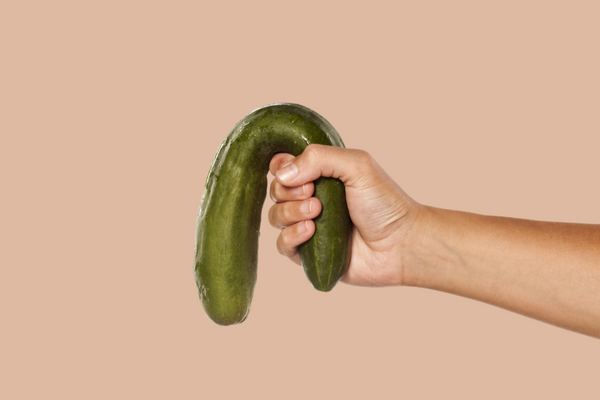In this article, we’ll explore the best food for hair growth, backed by science and made relevant for the Filipino lifestyle. Whether you're looking to prevent further shedding or boost regrowth, your next grocery list might hold the solution.
How Nutrition Affects Hair Health
Hair is primarily made of keratin, a type of protein. So, it makes sense that what you eat affects how your hair grows, sheds, and stays strong. Deficiencies in certain vitamins and minerals can contribute to hair problems like:
-
Hair thinning
-
Brittle strands
-
Dry scalp
-
Slower growth rate
The good news? A diet rich in the right nutrients can help maintain and even restore healthy hair. Traction alopecia, for instance, is a condition caused by frequent tight hairstyles that pull on the scalp. While addressing the styling habits is key, strengthening your strands from within can also reduce the risk of damage.
Best Foods for Hair Growth
1. Eggs
Eggs are a powerful source of protein and biotin, two nutrients essential for hair growth. Biotin helps produce keratin—the very building block of your hair. A 2022 study found that biotin supplementation helped improve hair growth in those with deficiencies. Filipinos can easily incorporate itlog into breakfast dishes like silogs or tortang talong.
2. Sweet Potatoes
Sweet potatoes are rich in beta-carotene, which the body converts into vitamin A. This nutrient encourages sebum production, keeping your scalp moisturized and balanced. A healthy scalp is key to avoiding dandruff and inflammation, which can affect hair follicle function.
3. Malunggay (Moringa)
This Filipino superfood is loaded with iron, zinc, and vitamin C. Iron carries oxygen to the hair follicles, zinc supports tissue repair and growth, and vitamin C is an antioxidant that protects strands from oxidative stress. Add it to tinola or smoothies for a nutritious boost.
4. Fatty Fish (e.g., Bangus, Tuna)
Salmon, sardines, bangus, and tuna are high in omega-3 fatty acids. These healthy fats reduce scalp inflammation and encourage thicker hair. Studies have shown omega-3s can prolong the anagen (growth) phase of the hair cycle.
5. Nuts and Seeds
Almonds, walnuts, and sunflower seeds are rich in vitamin E, which supports scalp health and improves blood circulation. They also contain selenium and zinc—two minerals shown to prevent scalp flaking and promote growth.
6. Avocados
Avocados are packed with monounsaturated fats and vitamin E. They help hydrate the scalp and strengthen the skin barrier. This is especially helpful in the Philippines’ dry season, where heat and sun exposure can dry out hair.
7. Dark Leafy Greens
Spinach, kangkong, and alugbati offer iron, folate, and vitamin C—essential for collagen production and iron absorption. Low iron is a common cause of hair loss, particularly in women.
8. Legumes (Beans and Lentils)
Legumes provide plant-based protein, iron, and biotin. They are a low-cost, high-impact food group that fits perfectly into a budget-conscious Filipino diet. Try pairing monggo or adobong sitaw with black beans.
9. Whole Grains
Brown rice, oats, and quinoa contain B vitamins, iron, and zinc. These nutrients improve oxygen delivery to the scalp and help regulate oil production. Complex carbs in whole grains also prevent insulin spikes, which have been linked to hair loss.
10. Greek Yogurt
Greek yogurt is rich in vitamin B5 (pantothenic acid), known to improve blood flow to the scalp and promote follicle health. It also contains protein, supporting hair structure from within.
11. Berries
Berries like strawberries, blueberries, and kamias are full of antioxidants and vitamin C, which help with collagen production and iron absorption. Vitamin C also combats oxidative stress in hair follicles.
12. Liver
Not everyone’s favorite, but liver is one of the most nutrient-dense foods, containing high amounts of iron, B vitamins, and zinc. For those with hair shedding related to anemia, this could be an effective traditional remedy.
Other Ways to Support Hair Growth
Beyond food, here are other science-backed ways to encourage healthy hair:
-
Minoxidil: This FDA-approved treatment helps stimulate hair follicles and is commonly used to treat male pattern baldness.
-
Scalp massage: Just 4 minutes a day has been shown in studies to increase thickness over time.
-
Lifestyle changes: Smoking and chronic stress are known to disrupt the hair cycle. Practice stress-reduction strategies from our lifestyle guides.
-
Proper sleep and hydration: These affect your hormonal balance, which in turn impacts hair growth.
Conditions That Can Affect Hair Growth
Hair loss isn’t always about poor nutrition. It can also be a symptom of a deeper health issue:
-
Seborrheic dermatitis: This scalp condition can clog follicles and lead to shedding.
-
Alopecia areata: An autoimmune disease that attacks hair follicles.
-
Diabetes: Poor circulation affects hair nutrient delivery.
-
Hypertension: Blood pressure medications and vascular issues can reduce hair quality.
If hair loss is sudden or severe, seek medical advice. Your doctor may recommend blood tests or topical medications.
Daily Habits That Strengthen Hair
-
Use a silk pillowcase to reduce friction and breakage
-
Avoid heat styling or chemical treatments too often
-
Don’t tie your hair too tightly—this can cause traction alopecia
-
Stick to sulfate-free shampoos and conditioners
-
Use a wide-toothed comb on wet hair
Feed Your Hair from the Inside Out
A healthy head of hair starts on your plate. By eating nutrient-rich foods—especially those found in everyday Filipino meals—you’re giving your hair the best chance to grow stronger, shinier, and more resilient. And when paired with science-backed solutions, good sleep, and stress management, the benefits go even further. Need personalized tips? Explore our guide to hair loss or browse effective treatments to complement your diet. With Andyou, you won’t need to worry about losing your hair and your confidence.















